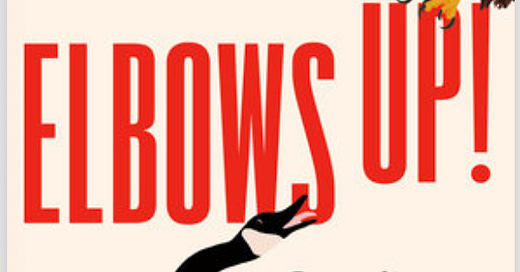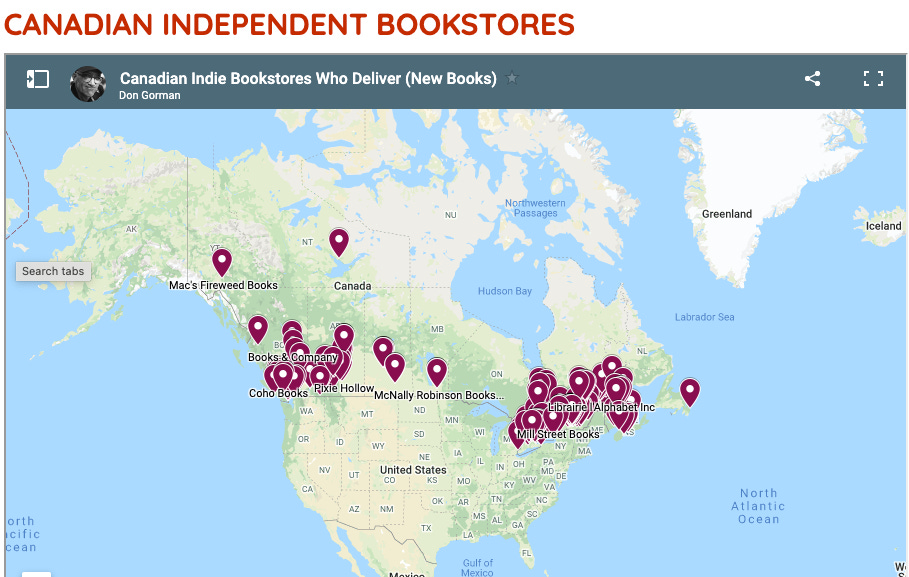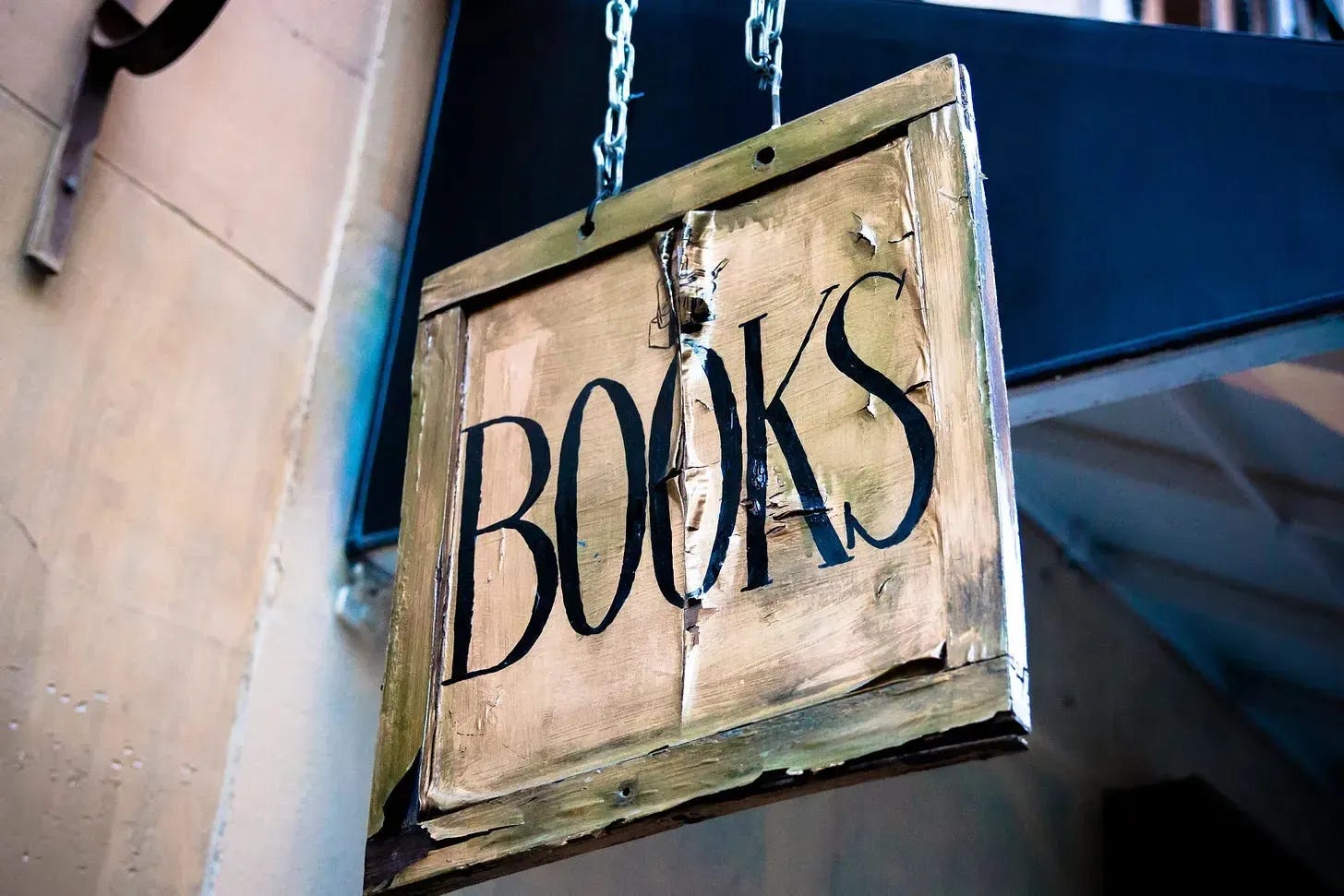This is the 289th edition of SHuSH, the newsletter of The Sutherland House Inc. If you’re new here, press the button:
Sutherland House is always happy to receive submissions of manuscripts or proposals for nonfiction books. If you are looking to get published, contact submissions@sutherlandhousebooks.com. No agent required.
Three years ago, long before he declared himself a politician, Mark Carney published Value(s), his attempt at solving some of the world’s biggest problems: income inequality, climate change, systemic racism, etc. The book was reasonably well received. It sold well. A sequel was in order.
Announced last year, The Hinge: Time to Build an Even Better Canada was ostensibly Carney’s attempt to address Canada’s biggest issues, and perhaps to position himself as our future leader. The book was set for release in May 2025. Events interceded and Carney was elected prime minister on a far tighter timeline than anyone, including his publisher, could have imagined. Publication of The Hinge was delayed. An anonymous source told the Toronto Star Carney was too busy politicking to finish the final edits on the book. I heard the delay had more to do with campaign finance rules that would consider a book publicized or released in election season as political advertising. Anyway, a new release date was set for July 1. Amazon now has The Hinge coming next January.
Carney’s political opponents have been enjoying the delay. Critics both left and right have attributed it to the difficulty of squaring positions taken by Carney a year or two ago with positions he espoused during the campaign and, more recently, as prime minister.
I don’t doubt that Carney’s politics have moved over the last six months. And I wouldn’t be surprised if his second book is being rewritten in whole or in part. I don’t have a problem with that. Much has happened, both in Canada and south of the border. We’ve all been reconsidering our positions.
My problem with Carney’s conduct is not that he’s revising his manuscript, if he is, but that he’s not revising his publishing contract.
The Hinge is set to be published by Signal. Signal is a division of McClelland & Stewart. M&S is a division of Penguin Random House Canada. PRHC is a division of Penguin Random House LLC, corporate headquarters at 1745 Broadway, 3rd Floor, New York, New York, 10019.
Penguin Random House LLC is owned by Bertelsmann, a media conglomerate in Gütersloh, Germany, but legally and operationally, it is a US company. Its executive leadership, including CEO Nihar Malaviya, works out of the above address. Strategy and publishing priorities are set in New York, and profits in PRH’s many far-flung international divisions flow to New York. So the prime minister of Canada is publishing his book with the Canadian branch plant of a US company.
Other recent prime ministers have done the same. Justin Trudeau published Common Ground with HarperCollins. Steven Harper published Right Here, Right Now with Signal, and his forthcoming memoir sits there, too. Jean Chretien released My Stories, My Time with Random House Canada. Most of our politicians have published with branch plants of American firms.
I should add that many of our best writers publish at these same branch plants, if not directly with US publishers. (Even middling scribblers like me have published directly in the US.)
But, again, the world has changed. To quote no less an authority than Mark Carney, Canada’s old relationship with the US, “based on deepening integration of our economies and tight security and military cooperation, is over.” We need to “fundamentally reimagine our economy,” “retool” our industry, and enhance our self-sufficiency.
He sees our cultural relationship with the US as part of this project. From the Liberal platform: “In this time of crisis, protecting Canada means protecting our culture, our journalism, our perspectives. The Americans have threatened our sovereignty and issued inflammatory statements about our economy; we need to be able to tell a story that fights back.”
Right under the cultural section of the platform was a “Buy Canadian” plank. “At a time when our economy is under threat, consumers want to do their part as patriotic Canadians, buying things that are truly made here.” Team Carney promised to make it easier to determine what is and isn’t a Canadian product and prioritize made-in-Canada suppliers in every sector of the economy, limiting bidders from foreign suppliers, and so on.
There aren’t many silver linings to Trump’s second term, but one has to be that it has highlighted the perils of outsourcing so much of our economy and culture to the US. We were lulled into a cultural complacency, thinking it didn’t matter that another country’s norms, values, and market demands dominated our markets and our discourse. Less than 5 percent of Canadian book sales are attributable to Canadian-owned publishers. There isn’t another country in the world that has allowed its intellectual life to be so thoroughly dominated by another nation, let alone another nation that has declared economic war on it, and is slowly losing its collective mind.
I’m sure the branch-plant operations that dominate our book publishing sector would counter that they employ Canadians and that they have a certain amount of editorial independence from the US. I don’t dispute that. But there are other considerations.
Executives at the branch plants are answerable to New York and the people in New York don’t really care about “protecting our culture, our journalism, our perspectives,” or that their president belittles and threatens to occupy us. If illiberal pressures of the kind already visited on law firms, Columbia University, and Disney begin to hit book publishing—is it really that far-fetched?—the vast majority of Canada’s book publishing sector is in the line of fire. Decisions on how to respond won’t be made in Canada.
A solid portion of the economic value of Canadian publishing activity now seeps to New York. It may be that 98 or 99 per cent of the after-tax profits of Canadian book publishing leave the country.
More importantly, the publishing rights (i.e., intellectual property) of Canadian authors who publish with the branch plants are ultimately controlled in New York. The assignability clauses on PRH Canada contracts I’ve seen are clear on that point.
Should the economics of book publishing deteriorate, it’s not difficult to imagine that the multinationals now operating in Canada would decide to retreat to headquarters. All large organizations cut from the margins first. One or more branch plants could disappear overnight, taking a big chunk of our heritage with them.
You get the point. All the arguments that Carney makes for buying Canadian and prioritizing made-in-Canada companies apply in spades to book publishing. And all due respect to our steel and aluminum industries, a lot of countries produce those products, while only one produces Canadian culture.
To truly do his part in “protecting our culture, our journalism, our perspectives,” Carney should be publishing his book with a made-in-Canada publisher. All our politicians should do the same.
As should all our authors. Some can’t afford to—they need the larger advances only a multinational will pay—but that’s a policy problem, something for Carney and Co. to “retool” as they go about preparing us for a post-American world.
Those authors who can afford it—the ones whose names everyone knows—should be hiving off Canadian rights to their books and selling them to independent Canadian publishers rather than gifting everything to multinationals.
And that brings us to this atrocity:
It’s a well-known phenomenon that in times of trade tension, foreign multinationals engage in camouflage operations to mask their country of origin. Since Trump disrupted the global economic order, any number of foreign companies have been scurrying to drape themselves in Canadian flags to disguise the fact that the profits and controls of their Canadian operations flow elsewhere.
Imagine you are head of Penguin Random House Canada, a foreign firm with a dominant position in the Canadian market. A trade war erupts and everyone’s shouting “Buy Canadian!” What would you do?
You’d do something like the project above, counting on leading Canadian voices to be so thoroughly subsumed in a system of American domination that they wouldn’t notice they were being used to launder the reputation and protect the economic interests of a US-based multinational, or that the net proceeds from this bold defence of Canadian sovereignty will be going straight to 1745 Broadway, 3rd Floor, New York, New York, 10019, along with the licensing rights.
Great job of fighting back, everybody!
Support Independent Publishing
Sutherland Quarterly recently released Laurent Carbonneau’s At The Trough: The Rise and Rise of Canada’s Corporate Welfare Bums. You can read an excerpt, “Corporate Welfare is Canada’s Most Expensive Addiction,” here in The Walrus.
As a SHuSH reader, you are eligible for this special offer: buy a subscription to Sutherland Quarterly (or treat a friend) and we’ll send you the Sutherland House book of your choice at no charge.
Launched in 2022, Sutherland Quarterly is an exciting new series of captivating essays on current affairs by some of Canada’s finest writers, published individually as books and also available by annual subscription—four great books a year, mailed to your door, for just $67.99. Subscribe now at sutherlandquarterly.com and we’ll immediately be in touch to send you the free book of your choice.
Our regular reminder to readers to support independent booksellers. Click this link to make the above map come alive.
Our Books Newsletter Roll (suggestions welcome)
Kwame Fraser’s Kwame Eff, “economic democracy, political economy of Canadian arts and culture, etc.”
Banuta Rubess’s Funny, You Don’t Look Bookish, reviews five books a week.
The Bibliophile from Biblioasis, an independent publisher based in Windsor.
The Literary Review of Canada’s Bookworm, “your weekly dose of exclusive reviews, book excerpts, and more.”
Art Kavanagh’s Talk about books: Book discussion and criticism.
Gayla Gray’s SoNovelicious: Books, reading, writing, and bookstores.
Esoterica Magazine: Literature and popular culture.
Benjamin Errett’s Get Wit Quick, literature and other fun stuff
Lydia Perovic’s Long Play: literature and music.
Tim Carmody’s Amazon Chronicles: an eye on the monster.
Jason Logan’s Urban Color Report: adventures in ink (sign-up at bottom of page)
Anne Trubek’s Notes from a Small Press: like SHuSH, but different
Art Canada Institute: a reliable source of Canadian arts info/opinion
Kate McKean’s Agents & Books: an interesting angle on the literary world
Rebecca Eckler’s Re:Book: unpretentious recommendations
Anna Sproul Latimer’s How to Glow in the Dark: interesting advice
John Biggs Great Reads: strong recommendations
Steven Beattie’s That Shakespearean Rag, a newsy blog about books and reading
Mark Dykeman’s How About This: Atlantic Canadian interviews and thoughts on writing and creativity.
J. W. Ellenhall’s 3-Page Book Battles: Readers help her choose which of three random books to review each month.
Donald Brackett’s Embodied Meanings: “Arts music films literature and popular culture.”
Thanks for reading. Please either:









And with all the best of intentions, here we are, writing on Substack which is headquartered and controlled in San Francisco. To its credit, Substack rebuffed a purchase/takeover offer from Elon Musk, yay, and partnered with Spotify which was founded in Sweden but trades on the NY stock exchange. We are so linked, not only to the US, but also globally!
Yes, the carelessness and contempt implicit when prominent politicians select U.S. branch publishers has infuriated me for years. I felt it reached a peak when Jagmeet Singh chose Simon & Schuster for his "Love & Courage: My Story of Family, Resilience, and Overcoming the Unexpected" published in 2019. I wrote to him at the time:
"I was pleased to see your new book today when I visited Chapters Indigo.
"I was VERY disappointed to see that you chose as a publisher Simon & Schuster, 100% U.S.-owned, and a subsidiary [at that time] of CBS Corporation.
"As if that was not bad enough, they choose also to print the books they publish in Canada with printers in the United States, when we have many fine and reasonably-priced Canadian book printers.
"Surely a Canadian publishing company, particularly a BC-based publisher, would have been a far better choice for your work."
Unsurprisingly, I received no response.